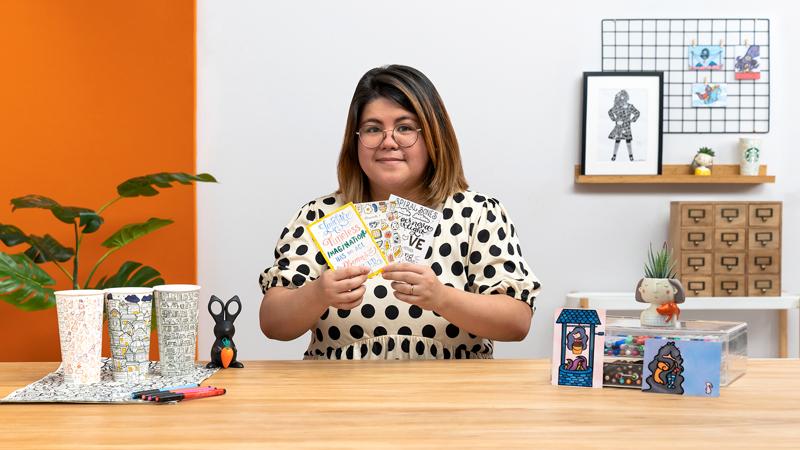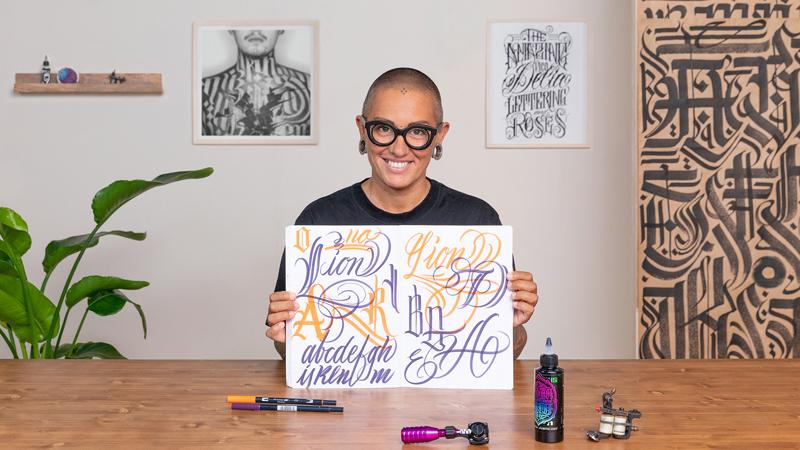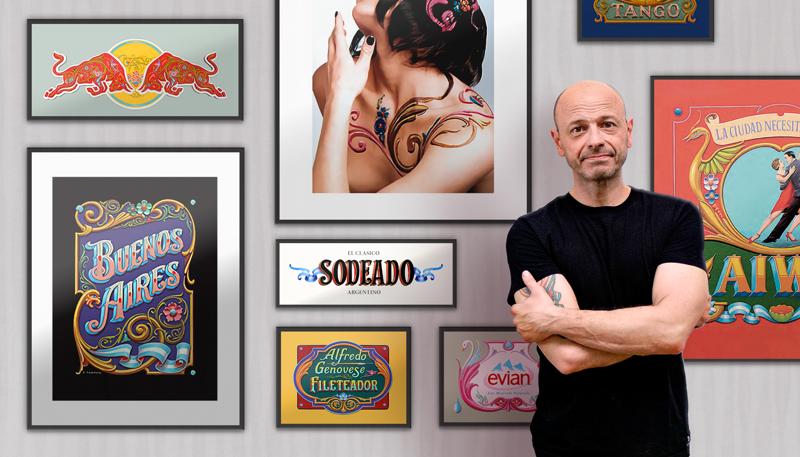Course overview
- Provider
- Domestika
- Course type
- Paid course
- Level
- Beginner
- Deadline
- Flexible
- Duration
- 5 hours
- Lessons
- 22 lessons
- Certificate
- Available on completion
- Course author
- Alfredo Genovese
-
Alfredo Genovese -painter and teacher specialized in filleting Buenos Aires applied to packaging, advertising, bodypainting and tattoos- will show you what is the filleted Buenos Aires and how to make a poster from start to finish with this technique.
You will learn the history of filleting, its applications, draw its main iconographic elements and discover the rules that govern the design of this traditional painting technique with synthetic enamel and long hair brushes.
"If tango is a sad thought that is danced, fillet is a happy thought that is painted". (Ricardo Gómez, filleador).
The filleted is a pictorial and traditional art that was born in Buenos Aires in the late nineteenth century as an ornament to embellish cars, trucks and urban buses (called collectives) and that eventually became the iconographic emblem that best represents the city . The word fillet is derived from the Latin filum, meaning thread, and refers to a line that serves as ornamentation.
It is characterized by very stylized forms, the use of bright colors and an overload of their compositions. Within the works also include texts, which can be witty phrases, poetic sayings or names made with Gothic or cursive letters, always very ornamented.
The painter who decorated the cars was called filleting and did the work with long hair brushes or filleting brushes. The filleted with time happened to become a particular form of design that is applied in advertising, bodypainting and tattoos.
In December 2015 the filleted porteno was declared a World Heritage Site by Unesco.
Description
You will begin to get to know the work better, the influences of Alfredo Genovese and his teachers of filleting outside the school of Fine Arts.
Then you will learn the rules that govern the design of the thread and how to draw the main elements of the repertoire of shapes for its composition, the application of the volume, the strokes with the long hair brush and the preparation of the table on which you will apply the color of base
Then you will get to work and begin to paint. First the flat colors of the filleted motif and the letters, then the painting of the planes of light, then you will prepare the Yapan (the semi-transparent mixture that is used to paint the shadows) and apply the shadows and the shines
Finally, Genovese will give you the latest recommendations on the varnish finish and the digital edition of your poster.
Similar courses

-
Flexible deadline
-
3 hours
-
16 lessonsCertificate

-
Flexible deadline
-
2 hours
-
12 lessonsCertificate

-
Flexible deadline
-
5 hours
-
22 lessonsCertificate
